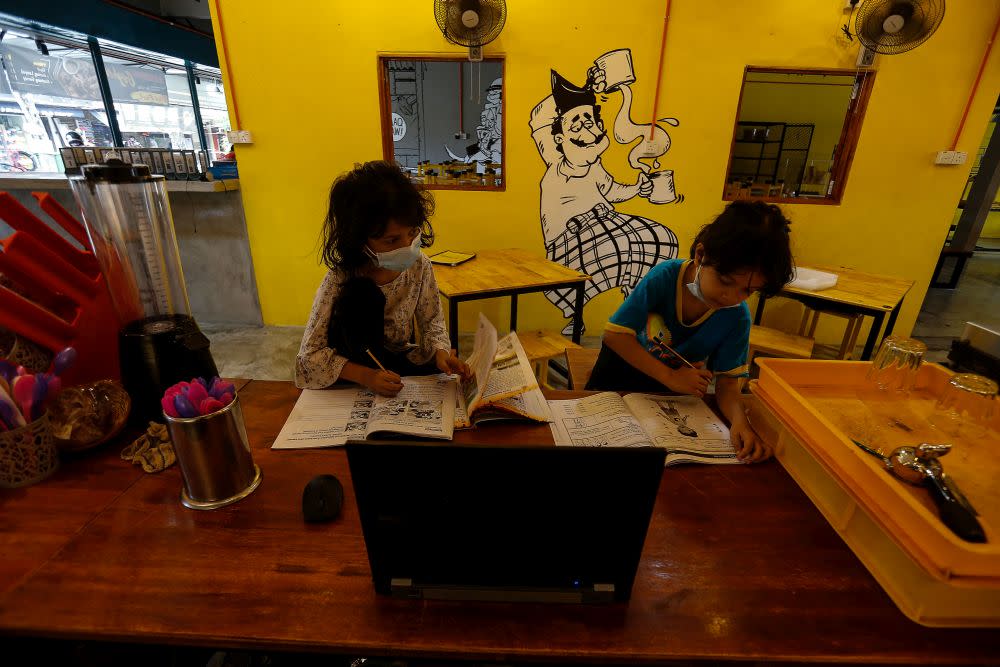With schools to close till Sept, education advocates urge govt to bridge internet access gap for students’ sake

KUALA LUMPUR, June 23 — Education advocates are calling on the government to focus efforts on dealing with the large number of school students left behind in their education due to a lack of internet access at home.
With the National Recovery Plan (NRP) dictating that schools are only set to reopen in Phase 3, in September or October, advocates are saying the time can be best used to ensure internet access for all students to cope with home-based learning.
Former deputy education minister Teo Nie Ching foresees the education gap between those with internet access and those without, will widen.
She added that the government found out last April that 36.9 per cent of students nationwide did not have electronic devices needed for online learning.
She highlighted that although earlier this year 150,000 laptops were promised to help marginalised students, over 90,000 of these laptops will only be delivered in September, when schools are projected to reopen at the earliest.
“Unicef reports have also shown that one in five inner-city parents reported that their children have lost interest in school,” she said, referring to a study by the United Nations Population Fund (UNFPA) and United Nations Children's Fund (Unicef).
“And it's not just students. Parents are also struggling, and the same goes for the teachers and educators who don't have suitable devices and data packages for online learning. All these issues need to be addressed, despite SPM 2020 showing otherwise,” added Teo.
Kelvin Tan, co-founder and chief executive officer of Project ID, said that more stakeholders needed to be roped into any discussion on education efforts to solve issues such as the Internet gap.
“I believe we all play a role in providing support for our children — corporate Malaysia, the private sector, parents, and other members of the community,” he said.
Tan even recommended involving students in ongoing conversations about educational content and suggested that more “meaningful” data are collected — for example, on what type of content would benefit students who have no access to the Internet, but have access to televisions — pointing towards a study his organisation had conducted on online learning methods.
“When learning is not a good experience, students’ motivation will wane.
“They are the audience and the ultimate beneficiaries. If there’s anyone who can tell us what helps them learn better, it will be our students themselves,” he said.
Country director of Pemimpin GSL Cheryl Ann Fernando, agreed with Kelvin that the larger community needs to get involved in education efforts, saying that to do so, clearer information is needed on how many more students are left without internet access.
“With this data, other corporate bodies can also come forward to provide the support through data or devices for students.
“If we’re going to delay the reopening of schools until September, then it is essential to ensure every child has a proper device for them to carry on with online learning,” she said.
Fernando also took the stance that school closures should not be a blanket policy for all but instead should be implemented according to the locations and demographics of the students.
“For example, allowing students without access to come to schools, especially if they are in the green zone. This will help us to prevent students from being left behind.
“I also know and understand that to do this we need to ensure our teachers are all vaccinated quickly so they can go back to schools safely,” she added.
The NRP is a timeline — split into four phases — for when important economic and social activities will be allowed to resume, following the current movement control (MCO) in place to curb the spread of the Covid-19 disease.
The NRP will move from one phase to another according to three main criteria, namely; daily Covid-19 cases, the capacity of intensive care units (ICU) nationwide, and the number of people vaccinated against the novel coronavirus.
Phase 3 of the timeline — where schools will reopen — is set to begin when daily Covid-19 cases drop below the 2,000 mark, ICU capacity is at a “comfortable” level, and at least 40 per cent of the population is inoculated.
Related Articles Licensed money lenders, credit firms get nod to operate during Phase One of MCO 3.0 Seven nabbed at birthday party in Shah Alam condo, five test positive for drugs Klang MP calls on govt to throw lifeline to community-based businesses badly hit by Covid-19



